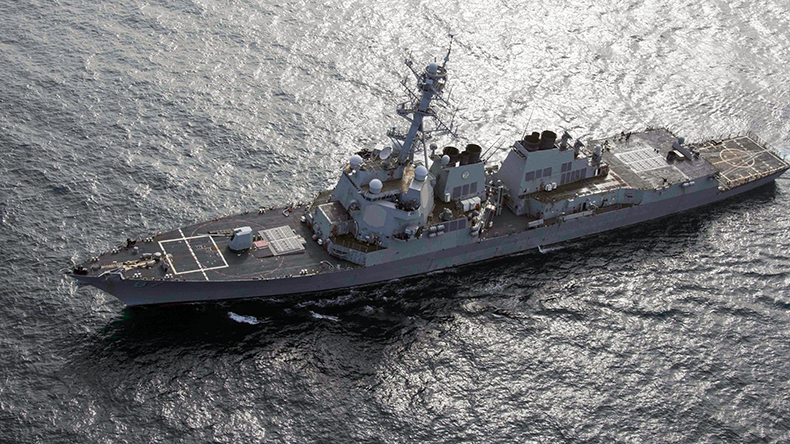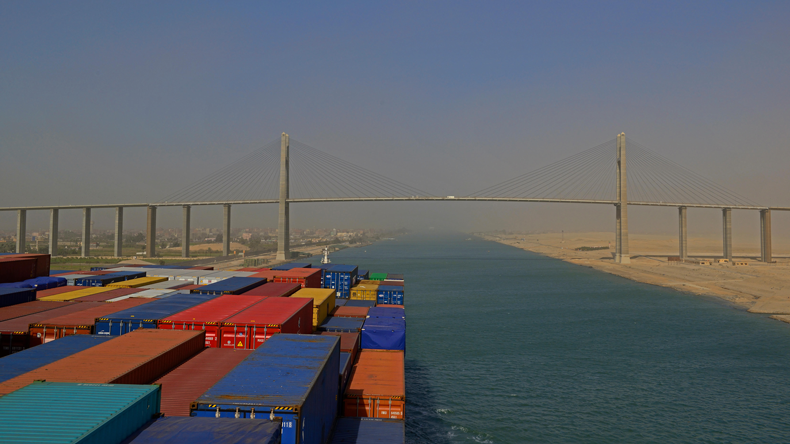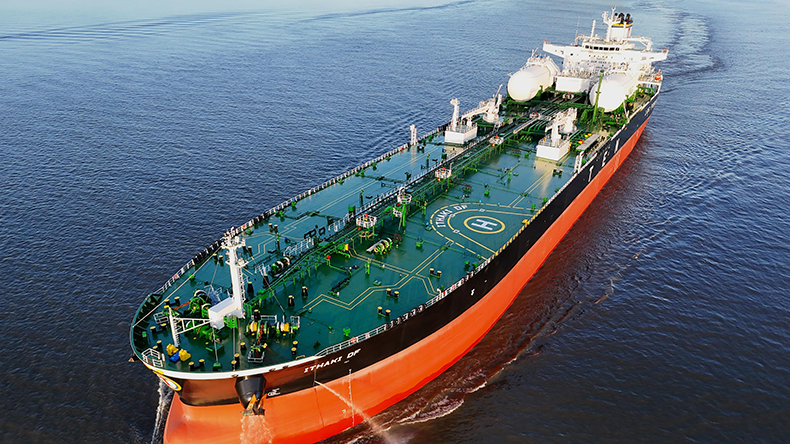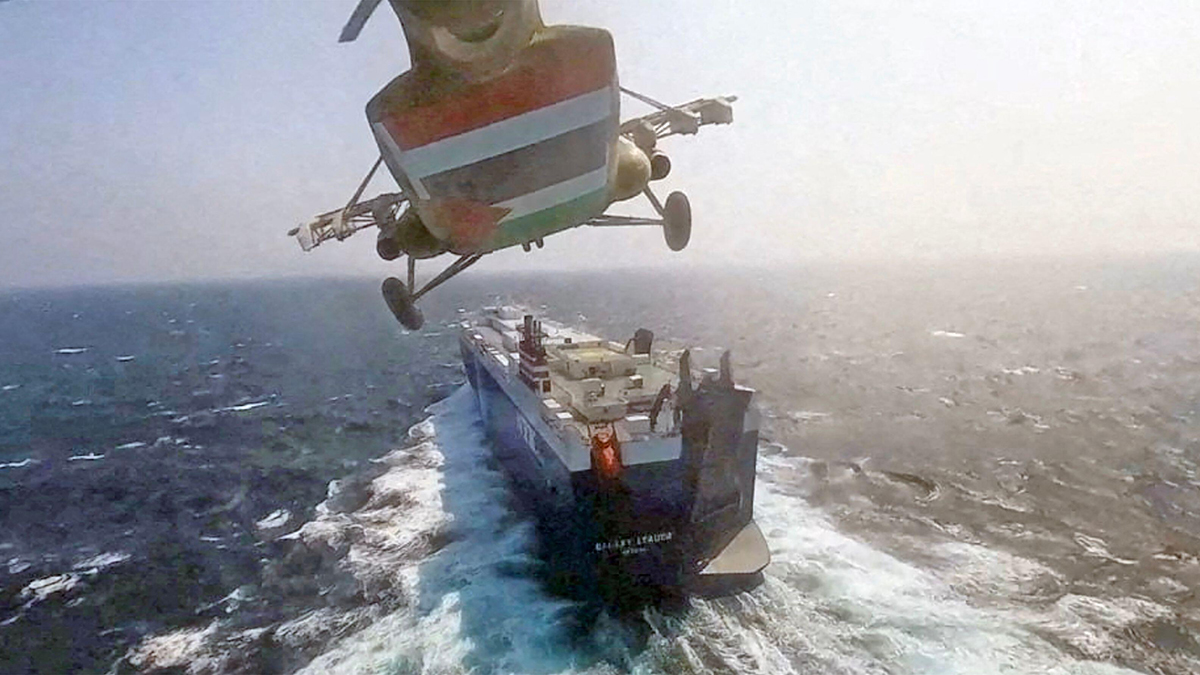War on shipping routes is more than a marine insurance issue: Denèfle
‘Risk managers should ask themselves, how their supply chain could be affected by the disruption to shipping in a time of war, or by an international crisis that all of a sudden forbids the usual shipping activities,’ Iumi president, Frédéric Denèfle, says
Risk managers should be alert to the impact of war on seaborne transit, International Union of Marine Insurance president argues
War has been a headache for shipping in the Red Sea but risk managers focused on Europe also have cause for concern, according to the president of the International Union of Marine Insurance (Iumi), Frédéric Denèfle.
Speaking at the Federation of European Risk Management Associations’ forum in Madrid this week, Denèfle first described how the critical conduit for 30% of the world’s container traffic is currently facing a shipping crisis of unprecedented scale.
The Red Sea conflict, from a shipping perspective, is an exercise in crisis management, Denèfle said, from missile attacks, fatalities, salvage and general average actions, ship losses, cargo losses and pollution.
The risks to trade, he added, take seven main forms – reducing marine transit; restricting shipping to regional trade; decreasing crew availability; creating longer routes which presents new risks; providing no alternative transport; disrupting supply chains; and impacting inflation on commodities and manufactured items.
He pointed out that the Red Sea and Suez Canal shipping route covers 10,000 nautical miles and it takes 25.5 days, based on the average speed of 16.48 knots for an ultra-large container vessel, while an alternative route, around the Cape of Good Hope, is 13,500 nautical miles and takes 34 days.
Other factors that shipping companies are having to manage is the difficulty in securing insurance for ships and cargoes and the “spiralling effect” of the tit-for-tat situation caused by sanctions imposed on Russia.
The casualties of the “dark fleet”, moreover, are creating headlines around the world. An example is the Pablo aframax tanker, which exploded in May 2023 in Malaysian waters, killing three crewmembers. This 1997-built ship had reportedly transferred 16m barrels of Iranian oil on 29 occasions and had no confirmed insurance.
A European worry
Since Russia’s invasion of Ukraine, the dark fleet of old vessels that lack proper insurance, have opaque ownership, and switch flags between different permissive ship registries, has ballooned. They pose risks to other ships, to the environment, and to countries impacted by maritime accidents these vessels cause.
A recent notable example is the liquefied natural gas (LNG) carrier Pioneer that reappeared off Norway’s northern coast a week after calling at Russia’s sanctioned Arctic LNG 2 project. The vessel is part of an emerging dark fleet of LNG carriers assembled by Russia to circumvent Western sanctions.
According to vessel tracking sites, Pioneer’s route had an elliptical pattern between Norway and the islands of Svalbard and Novaya Zemlya, and yet it appeared at the Arctic LNG 2 project 1,000 nautical miles away several days later. The perfect symmetrical nature of its AIS track, therefore, suggests it was a computer-generated spoof.
Denèfle, who is the chief executive of French war risk underwriter Garex, said this behaviour creates concern for Norway and the wider European region.
Speaking to Insurance Day after his presentation, Denèfle said: “Anything coming from Russia to Europe has to be taken seriously and Norway, being very close to Russia, certainly has some thoughts about how to handle a situation that could get worse for everybody involved.”
Denèfle noted Russia and Norway’s relationship with the Svalbard islands has long been marked by political tension, including disputes over maritime boundaries.
“Those issues are rooted in history, which explains why the situation is as it is now, and how it could deteriorate. We must think about that and make sure we have answers,” he said. “It’s not only about marine insurance, but a potential international crisis that could come closer to our borders.”
Marine insurers have been “constantly supporting” all shipping activity from Ukraine throughout the period since Russia’s invasion, Denèfle stressed.
“That’s more than two years of war where marine insurers were able to directly support Ukrainian exports, which is certainly a good signal to the Ukrainian government and to the Ukrainian population, and which has enabled the avoidance of an international food crisis, and has also fought inflation.
“It has been a very positive move from the marine insurance industry to show that, even during war, the private sector could make sure that [Ukraine] could still be open to international trade,” he said.
On the dark fleet, Denèfle said marine insurers are being “extremely cautious” about sanctions embargoes and have been quick to apply them and to understand the consequences of uninsured ships.
He explained: “Any kind of state opening their borders to ships should make sure that those ships are insured the right way, are insured with the right schemes. We know that shipping can raise some issues in terms of liabilities, in terms of pollution in some cases, and I think that governments in the states where those ships are trading should be extremely cautious about the consequences of there being no serious insurance schemes to face those losses. That means these losses will have to be picked up by the government, its tax system, its own people, because insurers are not able to support activities which are sanctioned or embargoed.”
Likewise, any vessel that it incorrectly flagged ought to be a concern for countries open to seaborne trade. “They should be conscious about avoiding shadow flags and shadow insurance schemes, but that is a public decision more than anything else, in my opinion,” Denèfle said.
Ready for the worst
On his main message to risk managers, Denèfle emphasised how war disrupts supply chains.
“Supply chains are the first difficult situation that you have to handle and so any risk manager should ask themselves, how their supply chain could be affected by the disruption to shipping in a time of war, or by an international crisis that all of a sudden forbids the usual shipping activities. That is basically a question which should be on the table for every one of us.”
This means having a proactive understanding of “what if?”
“It’s something that can be modelled and absolutely be foreseen, and it’s why we are now seeing more onshoring, reshoring and friendshoring decisions in order to avoid supply chain disruption due to an obvious potential crisis that one could experience with some countries,” Denèfle said.
“This has already started but it should be accelerated because we must consider the worst-case scenarios when the shipping supply chain to some parts of the world is not efficient enough.”
Can Iumi assist risk managers with that analysis?
“Iumi is sending this question at every conference we have, that we’re not in front of a globalised world any more. This is not something that only marine insurers have to appreciate in order to address their new risks, but also those who are relying on marine insurance, be they risk managers, financiers, banks, etc. We have to consider this issue together to fix it,” Denèfle said.




